- Home
- Lloyd Jones
Biografi Page 3
Biografi Read online
Page 3
‘My friend,’ he says, ‘you cannot imagine.’
In the distance four small lights pin down a charcoal-smudged horizon. Then, around dawn, Albania begins to emerge from something more than hearsay. The notion of clouds gives way to layers of hill; their tops are darkly pencilled and fold back on one another. An hour later, as we enter the port of Durrës, Mister Jin is still at my side. The rest of the passengers have come out on deck. They stand shoulder to shoulder, silent for the most part, and with a kind of shortsightedness that insists landfall is still half a mile off.
And there, high on the hill overlooking the town, is King Zog’s palace from one of Cliff ’s photographs.
We nudge the wharf and a stern rope is played out. An orderly crowd waits down on the wharf. A single hand is raised—and because it is so utterly alone, there is something almost defiant about it. And it occurs to me that Albanians are probably unaccustomed to welcoming back their own. Young soldiers shoulder rifles. Faces peer down from the upper floors of a grimy yellow building which is located almost ludicrously, as if it intends to meet visiting ships on equal terms. Its upper windows are missing and some of the floors lack walls. The building is a mouthful of broken teeth.
Standing in the rubble are thin, watchful men, unshaven, lank-haired with sideburns, dressed in bell-bottoms. It must have rained a short time earlier. Puddles and grime fetch away in the distance to a ramshackle customs house. Beyond this, a long stretch of rolled barbed wire separates the street from the wharf area, and hemmed in behind, hundreds and hundreds of people stand in the cold and mud, ‘waiting’, as it is often said of the fishermen in Durrës during winter, according to Mister Jin, ‘for the sea to freeze over so they could walk to Italy’.
I remember Cliff ’s parting advice to take American money, to keep it in small denominations and spread it throughout my person. I should put bank notes in my socks, but not in my shoes. Pack Elastoplast and anti-bacterial powder. Always travel with a bottle of raki. In the event of a hold up offer the bandits a drink, and try to be lighthearted.
I stick to Mister Jin’s side through customs, shadow him through the gap in the barbed wire. With widening eyes the crowd stares back. They press their hands against the wire. No doubt they have questions of their own. For the moment it is not Cliff ’s bandits that I see in these people but something rather more frightening about a crowd that has lost its tongue.
We get to the railway station ahead of the other passengers off the boat. I have a small confession to make. I tell Mister Jin that I had come here with notions of Greece. I had imagined blue skies and small villages carved out of whitewash.
Mister Jin returns a puzzled look. He asks, ‘Where is this place, please?’
We sit in a carriage blackened from fire. Glass crunches under our feet. A cold draught is blowing through the shattered windows. On the outskirts of Durrës bits of land float on lakes. Feet dangle over the sides of walls with water below. We leave the last of the wet washing hung out over balconies. Then we are in the countryside. A horse strains to pull a cart through a field of ploughed mud. In the distance an old woman ankle-deep in mud is buckled under a load of wood.
‘What a shame it is,’ says Mister Jin, ‘that you have chosen to come here in winter.’
So far Albania is bog, or under water, washed out in colour, and its bare hills are without ski lifts. The depletedness of the view from the train window is only marginally relieved by our arrival at Tirana. Although we seem to have come upon it too suddenly. One moment we are in the countryside—the next, gliding by at train speed are grey slabs of apartments and there is no time to compare the gradual approach to Tirana with American writer Rose Wilder Lane’s description of sixty years earlier: ‘You must come over the mountains from Durazzo and see at the foot of the mountains—with old Dajti stretched like some prehistoric monster against the sky above it—the long stretch of trees that’s Tirana and the white minarets rising.’
By the time a German journalist, Harry Hamm, arrived in Albania, thirty years after Rose Wilder Lane, of the country’s 530 mosques only a dozen remained. Some had been turned into theatres, others into gymnasiums. The Orthodox church on the hill at the southern edge of Tirana, he noted, had been turned into a restaurant and the altar into a counter on which a chromium-plated coffee machine displayed a ‘latest social achievement’ plaque.
From the railway station we walk through the city to the Dajti Hotel, its namesake looming over the city as Rose Wilder Lane described, but its summit covered in grey mist. Every visitor mentions Dajti but now I can see why. Tirana feels like rubble at the bottom of a cliff.
By the time we reach Skanderbeg Square the mist has turned to rain.
‘Such a pity,’ says Mister Jin, and he reminds me: in summer a cradle of smiles dangles over Tirana.
‘Where are the birds?’ I ask.
‘Birds?’
It has just occurred to me. It has to do with the absence of traffic, the total absence of noise, I am sure, otherwise I would not have thought of birds.
‘The birds are surely in the trees,’ he says.
We come onto Skanderbeg Square, which is vast and rain-soaked. We stop to look at the pedestal where the statue of Enver Hoxha had stood, and which is now occupied by small children. One boy strikes a pose and pops a muscle. A soldier posted there heaves his rifle and looks off in another direction.
From the square we follow the edge of a park. Mister Jin says we are nearly there.
‘Okay. Okay,’ call some small boys crouched by the fires of a chestnut vendor.
A young man selling newspapers calls out pleasantly, ‘Bush!’ He raises the Democrat salute. Two fingers.
I feel as if I’m the only foreigner in Tirana. A special emissary of some kind.
In fact the Dajti, as I discover, is full of UN people and logistics experts from Western relief agencies. The other guests are visiting ‘businessmen’. Romanian, Italian, Hungarian—they are all here. The foyer of the Dajti is a kind of piazza. The noise missing in the square is in the hotel. In the days ahead the visiting ‘businessmen’ fail to shed their heavy coats or venture beyond the smoke-filled lobby. At night they resettle in the lounge and sit at the low coffee tables under a thickening cloud of smoke. They raise their glasses, propose toasts and talk of ‘opportunities’, while a woman in a leopardskin coat goes from one man’s knee to another’s.
In the foyer of the Dajti, I begin to thank Mister Jin, until he stops me.
‘But you are a guest in my country. It has only been a short time together, but I feel secure to think of us as friends.’
He places both his hands on my shoulders. His unshaven cheeks brush with mine.
At the door, he calls back: ‘Dossier H! Don’t forget.’
6
I HAD TO wait another four days before meeting Gert Munz. He’d been on a home visit to Wiesbaden. His wife refuses to live in Tirana—and Tirana, of course, offers nothing for his teenage children. Munz was a career diplomat and Tirana was his posting.
‘What am I to do? I am held hostage.’ He smiled agreeably.
I liked and trusted his wrinkly eyes. A wild idea brought out a twinkle and then he might begin, ‘You know, I have an idea…’ But there were unguarded moments too, such as when I came upon him waiting for me down in the hotel foyer and lost in thought, that I imagined him preoccupied with crossing out the days, weeks and months he had left in Tirana.
While he wished me well he was less than confident of my finding Shapallo.
‘It is possible. Of course. But…’ There, his worst fears ended the possibility, and he shook his head.
Munz felt a considerable sympathy for Shapallo and had worked hard to organise a title de voyage. In their short time together they appear to have grown quite fond of each other. Shapallo enjoyed backgammon and their evenings were spent over Munz’s board. They drank down a bottle of port and Shapallo spoke of his future, of what it might hold for him. His wishes were simple enough, as Mun
z recalled: ‘To eat a freshly caught fish and to sit in a public square with his face turned up to the sun.’
The ferry Appia had duly arrived from Venice and the time came to shift the first thousand refugees from the besieged embassies to Durrës and on to Brindisi. The regime in its paranoia insisted the transfer be carried out at night, and Munz had watched the vehicle rumble off down Embassy Row and Shapallo lean out the open end of the truck to wave farewell.
But something had happened along the way. Shapallo had failed to turn up in Durrës—somewhere along the thirty-kilometre journey, Munz seemed to think, the refugees had tipped Shapallo from the truck.
‘Where is he now? I have no idea. Is he even alive? Frankly, I think not.’
Then he added, ‘Where would a man like that hide?’
One afternoon I waited for Munz on the steps of the Palace of Culture reading the graffiti cribbed from the comics and music sent home from the first wave of boat refugees: ‘GOD CREATED
HARLEY DAVIDSON…FUCK YOU SISTERS…METALLICA FOR ALL… REIGN IN BLOOD.’
Above the graffiti the green blinds blew out the broken windows, catching on the shards of glass. A gentle rain began to fall and a sea of black umbrellas went up around the square. The umbrellas scattered as an erratically-driven Fiat—another trophy sent home by refugees—careered through the crowd in the square. I tried to imagine the sound of bicycle tyres on wet asphalt, a city of bicycles and pedestrians that had once been Tirana.
The city was little more than a bazaar when Joseph Swire, an English traveller, passed through in the thirties: ‘There were no new buildings and Tirana seemed decrepit, muddy, grey for want of the sun which lagged behind heavy clouds.’
Italian money, influence and eventual occupation went some way towards raising the city above open sewers and small cottages cobbled from baked mud and boulders. The new style, in fact, was uncompromisingly Italian. Civic pride rebounded along the ‘great double-barrelled Boulevard Mussolini’, eventually to become Boulevard Stalin and, in 1991, Boulevard of the Martyrs.
The Italians had built the government ministries—four-storey-high pastel-coloured buildings. Behind these they had constructed pretty villas with patios and gardens enclosed by high walls.
The villas had eventually fallen into the hands of the Party of Labour and been cordoned off.
The ‘block’ is what Munz had wanted to show me. It is less than five minutes’ walk from the Palace of Culture, and yet, despite its central location, the block had been successfully sealed off by soldiers and hidden cameras to share with the outside world a kind of quarantine status. While it had been acceptable to acknowledge that the block and the outside world existed, the line was drawn at actually experiencing or talking about either. Those who were permitted to ‘venture out’ were ordered not to speak to anyone of what they had seen. It was better for everyone concerned that they simply pretend to have seen and heard nothing. That way everyone would be happier. Eventually the details of their journey would wear off like a lapsed dream, and in time, ventured Munz, the traveller might begin to doubt that he had even made the journey. When you reached this level of deception the traveller was rewarded with officialdom’s kindly smiles.
Comrade.
Two months earlier the block had been opened to the public for the first time. During the first weeks families had wandered arm in arm through leafy streets in a kind of vacation spirit. People spoke of Paris. Vienna. Rome. They were not quite sure what to make of the block, it being quite unlike anything else in their own country. The thing that had struck people most was how the air changed.
And it was true! In the space of a few blocks it was as if we had travelled from East to West. We had left behind the shabbiness and mud of Tirana’s unfinished pavements for quiet, tree-lined streets and sealed pavements. The water-stained apartment houses had given way to stylish villas. There were patios and gardens with luxuriant foliage trained to spill over high walls.
We walked beneath other walls topped with barbed wire and broken glass. Munz pointed to the cap of a soldier standing in the garden. A little further on, it was possible to see the soldier’s green tunic through the last of the yellowing grapevines.
Opposite a small park of tall poplars stood the Hoxha compound—a three-storey block which sprawled in the manner of a collapsed cake. In style it owed something to the model homes featured in editions of Ladies’ Home Journal from the 1950s—here and there a stolid brick façade conceded a pink shutter. Climbing rose grew over a black iron railing. At the bottom of the garden stood a sculpture of a shepherd playing his flute to a herd of goats.
At the other end of the property were greenhouses with mandarin trees. Standing guard here were two soldiers. Munz called them over to the fence.
The soldiers’ rif le butts were carved with initials. Poor nutrition had scarred their faces with acne, and any authority they were capable of was undermined by red blemishes and bewildered eyes.
When Munz asked them what they doing, the soldiers consulted each other. They shrugged, and then the younger one, with a sheepish, apologetic smile, mentioned the possibilities of riots. He pointed to the greenhouses behind, still intact.
We crossed the street to the park. From here we had an un interrupted view up the rruga running the length of the Hoxha compound. On the corner closest, one of the country’s new entrepreneurs had set himself up with a pair of bathroom scales. A cardboard sign invited customers to weigh themselves for two lek.
‘It is as you can see,’ said Munz, ‘a hopeless situation.’
Shapallo had lived in the block, but Munz didn’t know where. The dentist had described a small sunken garden surrounded by high walls. He couldn’t see out, and people couldn’t see in. In fact, he’d had no idea of his street address since he received no mail and took no telephone calls. Munz seemed to think that the windows in the villa had been shuttered all year round.
From what he had told Munz, Shapallo had lived for nearly twenty years in a comfortable cage. He also said that on the night of Hoxha’s death the cage door had been left deliberately open, and he had fled the block for the countryside, travelling at night and sleeping by day in concrete bunkers.
On the train from Durrës I had seen the bunkers squatting on the roadside and perched in fields of tilled earth. They were positioned to shoot the enemy coming over the rise. South of Durrës I had seen them sitting on the beaches like mutant grey jellyfish, watching the horizon.
After years of ‘soft living’ Shapallo had suddenly found himself foraging to survive. For a time he had subsisted on chestnuts and olives. Moving down the coast towards Sarandë, he had described to Munz his wandering through the orange-scented groves, picking fruit off the ground, a man with a straight back who placed each foot delicately, as if trying to tiptoe away from his shadow.
7
EACH MORNING THE student interpreters gather outside the Dajti to pick up casual work from the foreigners. As soon as I appear they look off in another direction or scuff their shoes on the concrete steps. We have given up on each other—at least this is what I tell the crowd in the hotel bar at night. Oddly enough it tends to be in the bar, here among foreigners, that Albania draws closer and seems more real than the city I wander through by day. The murals in the state shops offer loaves of bread, meat, vegetables; the walls drip with fruit, while the shelves collect dust. All the blame, I’m told, rests with the countryside where the peasants forgot to sow last spring. It’s the countryside I hear about in the Dajti bar each night.
Another food warehouse looted and set on fire. Elsewhere a truck carrying relief stores has been hijacked. In a small isolated village up near the Montenegrin border the people are angry. They want to know why only selected families are receiving food and clothing. How can one family be more deserving than the next when the fact is everybody is starving? And in the third incident of its kind, bandits have stolen the new beds from a hospital in the northern city of Shkodër. One agency run by the French is
pulling out. They have had a gutful. The country can go and knock on the door of hell.
Hey, this is not the Sudan, they say. It’s worse. The army can’t be trusted to guard the convoys. In the mountain villages the infant mortality is up there with the African disaster areas.
In the bar I hear about another country. For the hundredth time I’m told that I cannot imagine. This time it is Bill Foster, a tall, stoop-shouldered Midwesterner with unblinking eyes, on Albania’s ‘African mortality rates’. It is a sobering subject. We stare into our glasses until Bill relieves the gloom. ‘This is what I say to Sharon when she asks me what it’s like here. “It’s like, hey, Sharon, put on your best coat and shoes and climb into the cattle truck. It’s Saturday night. We’re going off into town.”’
We laugh. Some of us ponder ‘Sharon’. Some of us don’t quite believe in her. Bill’s talk of Sharon has the same uneasy effect as the name ‘Shapallo’ has on the student interpreters.
Bill is headed north in the morning. He says I’m welcome to make the trip. Everyone has been saying Shkodër’s the place. Politically, Shkodër is ‘hot’. I actually have other reasons for visiting Shkodër.
There will be a small detour to the northeast—if I can handle that, he says. There are some warehouses to inspect. But from Kukës, Shkodër is a five- or six-hour run.
We leave early the next morning. There’s five of us: Teti, the driver; Anila, Bill’s interpreter; and a pretty, soft-faced girl whose name I fail to catch. Bill introduces her as the ‘economist’.
‘Doesn’t mean shit though. Half the population is a director of something, and when you look them up they’re working in a tin shed with a hole in the roof.
‘It’s okay,’ he says. ‘She can’t speak English.’
The economist rides in the back with me. Bill rides shotgun. He’s virtually nailed himself to the side of Teti, who’s there because every relief vehicle is required to employ a local driver.

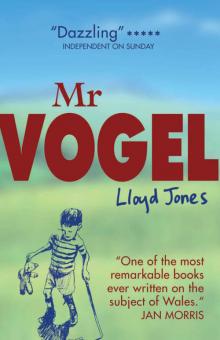 Mr Vogel
Mr Vogel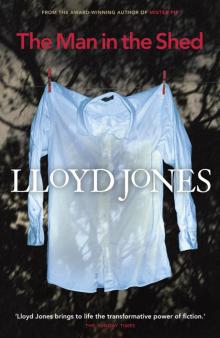 The Man in the Shed
The Man in the Shed Mister Pip
Mister Pip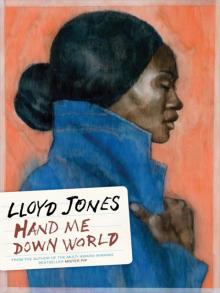 Hand Me Down World
Hand Me Down World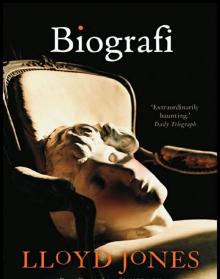 Biografi
Biografi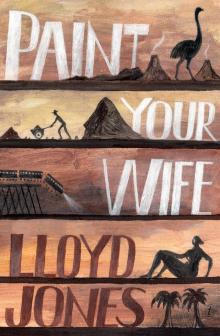 Paint Your Wife
Paint Your Wife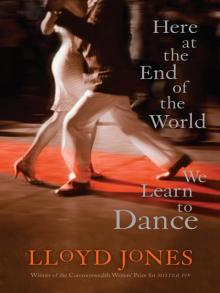 Here at the End of the World We Learn to Dance
Here at the End of the World We Learn to Dance My First Colouring Book
My First Colouring Book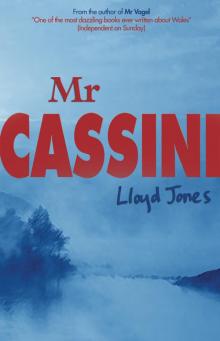 Mr Cassini
Mr Cassini See How They Run
See How They Run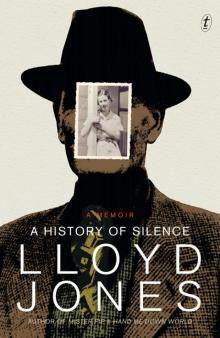 A History of Silence
A History of Silence The Book of Fame
The Book of Fame